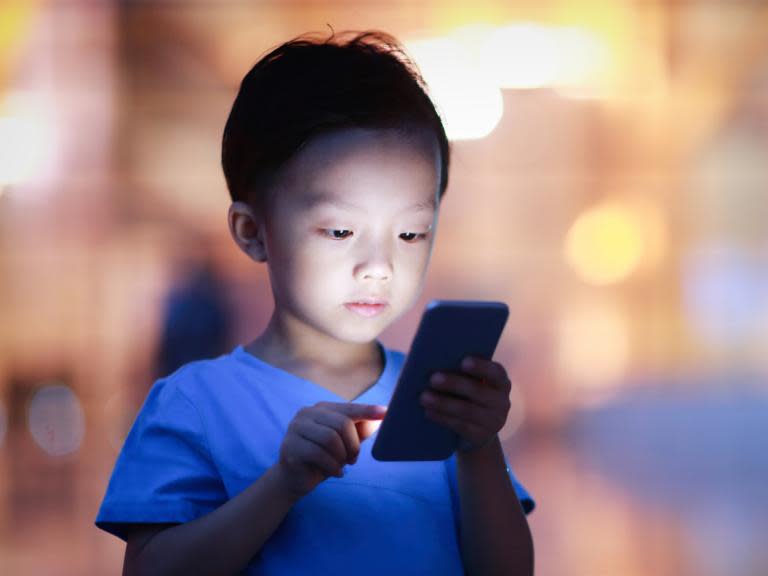Screen time for children under two more than doubles in 17 years
The amount of time that children under the age of two spend looking at screens on digital devices has more than doubled over a 17-year period, a study has found.
There's been growing concern over the excessive amount of time some children spend on smartphones and tablets, with paediatric experts recently advising that parents implement a digital curfew for their children an hour before going to bed.
In a new study published in journal JAMA Paediatrics, researchers investigated the extent to which the time children spend on screens has increased over the past couple of decades.
The team took a look back at an era when mobile phone use was far less prevalent than it is today, assessing children's screen time in 1997 and then comparing it to 2014.
The researchers used statistics previously gathered by the Child Development Supplement Panel Study of Income Dynamics at the University of Michigan, analysing data regarding 1,327 children in 1997 and 443 children in 2014.
According to their findings, children under the age of two in the US would spend an average of 1.32 hours in front of a screen on a daily basis in 1997.
By 2014, this average had increased to 3.05 hours, more than doubling over 17 years.
In comparison, children aged between three and five spent an average of two and a half hours in front of screens on a daily basis in 1997.
This had increased marginally to three hours a day by 2014.
“There is growing concern over the amount of time that children, particularly very young children, spend watching shows and in front of screens,” said Weiwei Chen, assistant professor in the Department of Health Policy and Management.
“Our findings were surprising as it feels like mobile devices are omnipresent, but televisions are still the most common way for young children to consume media.”
“The increase in the amount of screen time for infants and toddlers is telling. Our study reinforces general findings that a variety of characteristics, such as education and income levels, relate to screen use,” added Jessica L. Adler, assistant professor in the departments of history, in the Steven J. Green School of International and Public Affairs, and health policy and management in Stempel College.
“Further research is needed, once data become available, to assess changes in media consumption and device use in more recent years.”
A recent report comissioned by Internet Matters, Youthworks and the University of Kingston warned that vulnerable children could face becoming "lost in digital space" as they're growing up without enough internet safety education.
The report stated that young people who are in care, have special education needs or have mental health, physical or communication difficults have a greater risk of experiencing cyber bullying.



